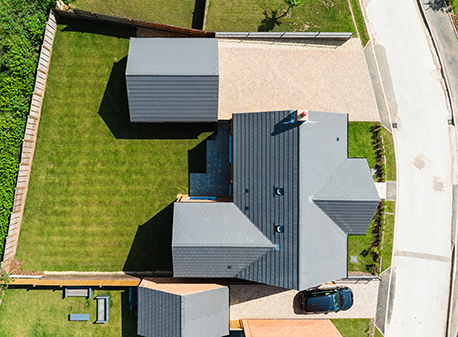First Time Buyers
Buying your first home is a hugely exciting – but also daunting – time in anyone’s life. At Walton Homes, we understand this better than anyone and are committed to making your experience a great one. That’s why we have created this comprehensive guide to help first time buyers like you, get through the process is a stress and hassle-free way. As a first time buyer, you might be struggling to see how you can get on the property ladder. After all, saving up for a deposit can be tough. And even once you’ve got the deposit together, you have to face the challenge of putting in an offer. We’ve compiled a comprehensive guide to help you with these early stages, and make the most of your house buying journey.
Saving for a deposit
With the rising cost of property prices, it is becoming increasingly challenging for first time buyers to acquire a mortgage without a decent sized deposit. Most lenders require you to have saved up around 20% if the value of the property to put down. This means if you’re looking at a £150,000 property, you will need to have saved at least £30,000. For many people – especially young couples and professionals – this is a huge sum of money, and is what makes many put buying a home on hold. But there are ways you can help boost your pot:
Have a goal in mind
You know how much you need to save, so start taking steps to achieve this as quickly as possible. If you’re moving in with a partner or a friend, split the down payment and both take appropriate measures to save your half. Work out how much you can afford to out aside each month, and add in any extra funds you might have at the end of payday. Keeping your saving consistent will give you a rough idea of when you should have saved enough.
Cut out the extras
Everyone has areas where they can curb their spending and boost their deposit. For example; forego your morning coffee and shop brought lunch, and take your own to work. Add what you would have spent to your savings and you could save over £10 a week extra. Learning to live without these luxuries is good practice for the first few months of owning a house, and will help you reach your goal faster.
Liaise with lenders
The final step is to always shop around, and speak to different lenders. Be open and honest about how much you can afford, and find out the different options open to you with your income. You might be able to get a better deal at building society or bank depending in your circumstances.
Negotiating an offer
Once you have saved up your deposit and found your dream home, you need to make an offer. This is the last hurdle before you can begin the buying process, but will vary from person to person and property to property. Here are some of our pointers to help you liaise with sellers, and negotiate the best offer on a property.
Pre-purchase conveyancing
Before you sign on the dotted line, you need to make sure you’re getting what you pay for. Early conveyancing or searches will identify if any surrounding properties have planning permission for new developments, or if anything will change drastically in the vicinity. You should also have a look at how much houses in the same area go for, to find out if you’re getting the best deal.
Making a bid
When making your first bid, it is often common practice to bid as much as 10% lower than the asking price. While this is commonly knocked back by the seller, it does give you a good base to start negotiations. It is often recommended to buy the worst house in the best area to ensure you get the best deal for your wallet and what you want from a property. You can increase your offer at any time, but can’t reduce it without good reason.
Liaising with a seller
It is easy to let your emotions run away with you when buying your first home, but it’s important to remain calm and objective. Stress your position to a seller, as first time buyers can signify a quick sale. Be patient, understanding, and good-willed; it will help you go far. Sellers will often have multiple offers to consider, so make sure your offer is sound.
Post-acceptance advice
Congratulations! You’ve finally got the ball rolling with your first home, and the whole process finally seems worthwhile. But what happens next? Does this mean you no longer have to worry, or could you still be left disappointed? Here are some things to note: Properties are either listed as “Under Offer” – meaning the seller has received an offer, but hasn’t made a decision to accept – or “Sold Subject to Contract” – where a provisional offer has been accepted and the home surveys and paperwork are being completed. In England and Wales, you need to be aware that neither of you are committed to the sale at this point. It is not uncommon for buyers to be “gazumped” where a seller accepts a second offer and beings this process with another buyer. This is however, illegal in Scotland. Whilst a home is under offer, your solicitor will perform a number of searches to ensure there are no Compulsory Purchase Orders, land disputes or dangers with the house. First time buyers should also consider employing a chartered surveyor to highlight any structural issues.
Exchanging house contracts
As a first time buyer, you are under no legal obligations to purchase the home or pay any of the seller’s costs prior to the exchange of contracts. By the time contracts are exchanged, you will have carried out all the aforementioned and be confident in the home you’re buying. Exchanging contracts is the penultimate stage of the legal process before you legally own a property. this is a legal document that commits you both to the sale, and should only be signed after your surveyor is happy with the house and your solicitor is happy to proceed. After then though, you will officially own your own home. This is an exciting time for a first time buyer, so be sure to take appropriate steps to ensure everything runs smoothly. For more help, advice and guidance; contact us today.
Latest News
In recent years, there has been a growing trend of bringing the outdoors in, blurring the lines between the interior and exterior of our homes. But now in the wake of the rise of popularity of outdoor entertaining, we are seeing a growing trend of “bringing the inside out,” incorporating elements typically found inside the […]
read more >
